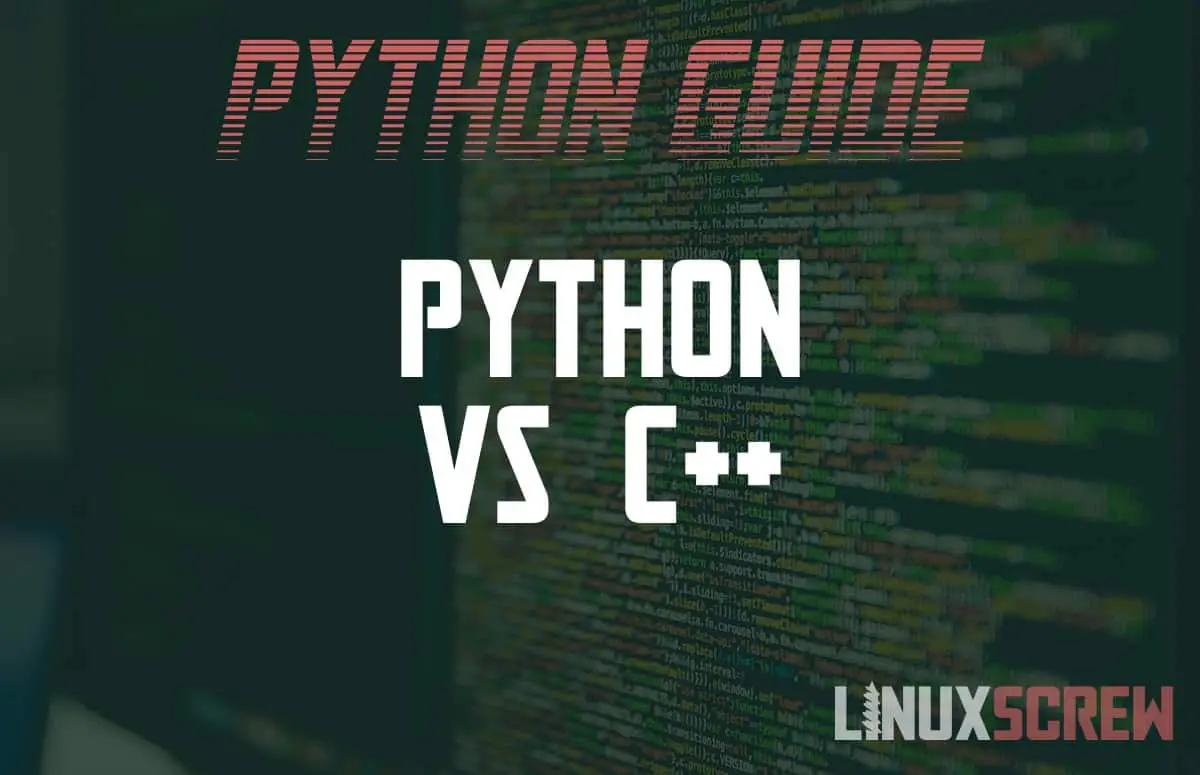Here’s a quick primer on the C++ and Python Programming languages to help the beginner or intermediate coders decide which to learn.
What is C++?
C++ is a compiled general-purpose programming language. It’s an extension of the C programming language – using similar syntax but adding object-oriented programming features like classes, objects, and additional expressions.
As C++ is compiled, it is converted to machine language prior to being executed. This means it runs much faster than interpreted languages like Python and means that it has fewer resource overheads, it’s perfect for running on hardware with limited storage, processing capabilities, or memory.
C++ has a simple syntax based on C, there are many libraries to add functionality. It is a powerful language for building high-performance applications that run directly on computer hardware, but due to this some higher-level computing knowledge is required to get the most out of it.
C++ does have a bit of a learning curve compared to interpreted languages targeted at beginners. A compiler must be used to build any code before it can be run, which can make debugging frustrating in addition to adding another tool into the mix which you must learn.
What is C++ Good For?
C++ is widely used for building desktop applications and video games due to its compiled nature and focus on performance. C++ can be used to build anything – even other programming languages (like PHP) are partially or fully written in C++.
Who Uses C++?
Large portions of your operating system (hopefully Linux!) are written in C++. Resource-intensive video games are usually written in C++ – Minecraft was recently re-written in C++ (originally built in Java) to improve cross-platform compatibility and performance.
It’s the go-to language for advanced developers who want performance and flexibility, as well as helpful object-oriented features to make building complex applications easier.
What is Python?
Python is a general-purpose programming language that can be used for everything from scripting to building full-blown web and desktop applications.
It’s designed to be easy to read, easy to learn, and easy to write. It’s been in development since 1991, the current version being Python 3, which is under active development.
Python bills itself as ‘batteries included’ – many libraries for common tasks are included, reducing the amount of code you have to write to get a project up and running.
Because of its focus on simplicity and the useful included libraries, Python has become one of the most popular programming languages for both those looking to learn and experienced developers looking to focus on the problem they are solving rather than re-inventing the wheel.
What is Python Good For?
Python is great for beginners due to its clear syntax and the fact that it focuses on readability. This makes it easy to figure out what your code (or someone else’s) is doing at a glance – making it easy to learn and understand.
It’s really good for just about any scenario where performance isn’t an issue. Python is an interpreted language rather than a compiled language. Compiled languages are converted to machine code which is tailored to run directly on your computer’s hardware – making it super fast. Python isn’t compiled, so there’s a bit of extra time for the code you’ve written to be interpreted into a language your computer can understand.
Practically, performance probably won’t be a big hurdle – modern computers are well equipped for running interpreted languages, and Python is popular in a lot of fields where performance does matter, so unless you’re looking to tailor your code to run on specific hardware, it’s probably not going to be a problem.
Who Uses Python?
Everyone uses it! Python is popular with beginners, data scientists, web and app developers, and can even be used for scripting and building desktop applications (and tanks!).
Which One Should I Choose in 2022?
If you’re an intermediate programmer who already has a language or two under their belt (like JavaScript or Ruby) – give C++ a look. Learning a compiled language with a bit less hand-holding will give you a better understanding of programming in general, and improve your problem-solving skills – it’s a good way to level up your programming abilities.
If you’re just starting out programming, go for Python – it’s easy to pick up and includes a lot of tools to give you a leg-up while you’re starting out.

